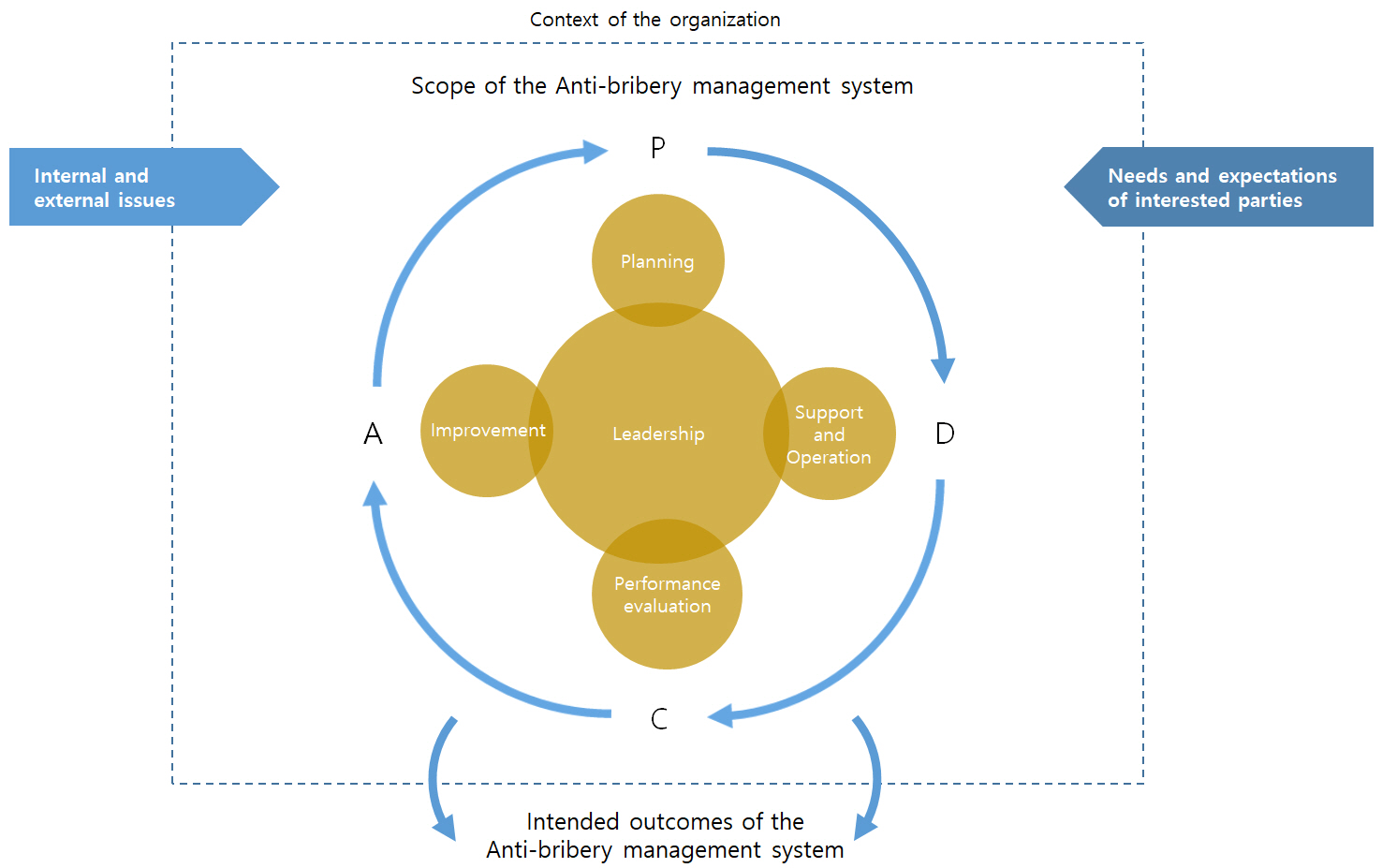
ISO 37001 is a certification standard for an Anti-Bribery Management System (ABMS). This standard provides guidelines for implementing a management system that helps organizations prevent, detect, and respond to bribery, while also ensuring compliance with anti-bribery laws and voluntary commitments applicable to their activities.
Although it does not specifically address fraud, cartels, and other anti-competition violations, money laundering, or other corrupt practices, organizations can choose to extend the scope of their management systems to include such activities.
While adopting this management system cannot entirely eliminate the risk of corruption, it can assist in implementing reasonable and proportional measures to prevent, detect, and respond to bribery risks.
Corruption is a widespread phenomenon, raising serious social, moral, economic, and political concerns. It undermines good governance, hinders development, distorts competition, and disrupts justice. Corruption infringes upon human rights and acts as a barrier to poverty alleviation.
Additionally, it increases the cost of doing business, creates uncertainty in trade, raises the prices of goods and services, and reduces their quality, leading to loss of life and property. It erodes public trust in institutions and impedes the fair and efficient functioning of markets.
Governments worldwide have advanced anti-corruption policies through international agreements, such as the OECD "Convention on Combating Bribery of Foreign Public Officials in International Business Transactions" and the "United Nations Convention against Corruption," as well as domestic laws.
However, laws alone are insufficient to solve the problem. Organizations have a responsibility to actively contribute to anti-bribery efforts, which can be achieved through leadership that establishes an anti-bribery management system along with a culture of integrity, transparency, openness, and compliance - the very purpose of this standard.
A well-managed organization, with proper management systems and compliance policies, can demonstrate its commitment to integrity and fulfill its legal obligations. The anti-bribery policy is a key component of an organization's overall compliance framework.
An anti-bribery policy and supporting management system help organizations prevent or mitigate the costs, risks, and damage associated with bribery, while enhancing trust and reputation in business dealings.
Compliance with this standard does not guarantee the complete elimination of bribery risks, nor does it ensure that bribery has not occurred or will not occur within an organization.
However, this standard aids in implementing reasonable and proportionate measures to prevent, detect, and respond to bribery risks within the organization.

Contact Person
kgb@icrqa.com
lee2750@icrqa.com